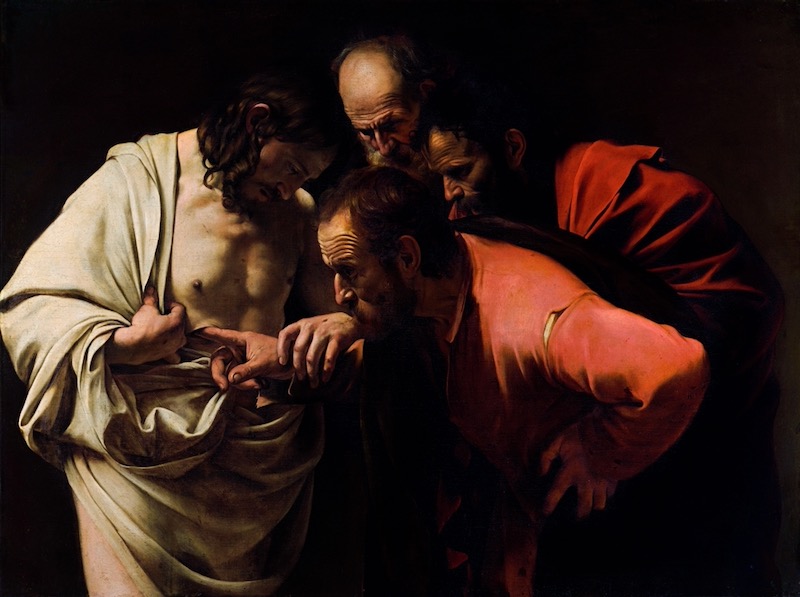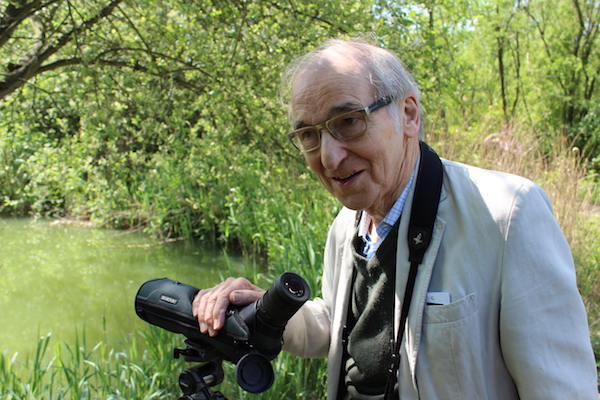I began to work for John Wilkins in 1988. In those days at The Tablet, when computers were not even a glint in the production editor’s eye, we all worked on manual typewriters which had a habit of catching your hand in the keys like an animal trap.
The old office in Great Peter Street, Westminster, was an electrical death-trap – hot in summer and freezing in winter. But it didn’t matter to me as the characters were colourful and the kettle was always on. I liked the place.
In my first few weeks in the office, Wilkins didn’t appear to know who I was as he raced past my desk on his way to and from lunch. The office lent itself to racing as there were several doors in each room, making it possible to appear and disappear like characters in a French farce.
Well, Wilkins did eventually learn my name, which was useful as I stayed for 13 years. In the early days, when a Biro was his only tool, I grew used to the sound of it slashing through my copy as he deleted three-quarters of it and prepared to dictate replacement paragraphs which had nothing to do with me. As I reeled back, shocked, from one of these editorial assaults, he would always give me an “I’m being reasonable” look, and say the immortal line, “But do it YOUR way! It’s YOUR piece!!” As if…
If working for Wilkins didn’t always do my confidence much good, it was always fun. When he was away on holiday, we would have two weeks where articles came in on time, were neatly edited in time for the deadline, and the issue went to press on the dot of 6 p.m. on a Wednesday. All this was very welcome at first, but it soon got boring. When Wilkins tore back into the office, usually furious at some headline which had been put on in his absence, fun came back to The Tablet.
The Wilkins week had two paces. Between Monday and Wednesday, he moved at something between canter, gallop and furniture-kicking frenzy. On Thursday mornings, he slept, and nothing other than the death of a pope or monarch could be allowed to wake him. Thursdays were for long lunches, lounging in his editorial chair with feet on the desk, or perching on the window sills, distracting members of staff who were trying to work. On Fridays, things picked up a bit, but not much. Staff at The Tablet have always been allowed to leave half an hour early on a Friday, to get to their houses in the country – not that many of them have country retreats these days, but it’s a nice relic of the paper’s Chesterbellocian roots.
The Wilkins two-speed week works itself deep into the psyches of Tablet employees. Long after leaving, I could never get round to anything on a Thursday morning, and felt weirdly guilty if I went out on a Tuesday night.
Whatever the point in the week, though, Wilkins was always the ultimate diplomat in his dealings with contributors. Many a time I told him that I had reduced someone to apoplexy on the phone by telling them their article was no good. “Pass them to me”, he would say. Five minutes later he would have charmed them into a complete rewrite (by himself) and probably a lunch date too. But it was normal for him to speak in honeyed tones. I once thought I heard him talking to a lady friend on the phone, only to discover later that it was the head of the Catholic Union.
His chairing of the Tablet Table – a long-established Catholic dining society – was masterful. When the Duke of Norfolk and the late Lord Longford (old friends) had one of their famous verbal duels, he alone could keep them under control. Likewise tired and emotional veterans of Vatican II, who shouted a lot and occasionally threw bread to vent their disillusionment.
Ah, the Wilkins years. My role, and that of the editor’s wonderful secretaries Judith Bennett and Sue Chisholm, was often that of a doting, but no-nonsense mother. As I cajoled him to eat a healthy lunch, Sue would slip him a bag of crisps as a treat. He was the patriarch, and we were his unruly brood. “Scamp!”, he would call Margaret Hebblethwaite, and, to the rest of us: “You’re all as artful as a wagonload of monkeys!”
But we were not his only family or his only life. The fact that John worked seven days a week prompted some to think he was a hermit who lived for his work. Not true. His social life would have out-glamorised that of many of his younger staff, and he managed to stuff a rich private life into the cracks between hours spent at his Tablet desk.
Working for Wilkins was a privilege. He is the best journalist I have ever met, and his decisions, though infuriating, were usually right. He’ll be missed. Happy retirement, John.



 Loading ...
Loading ...
What do you think?
You can post as a subscriber user ...
User comments (0)